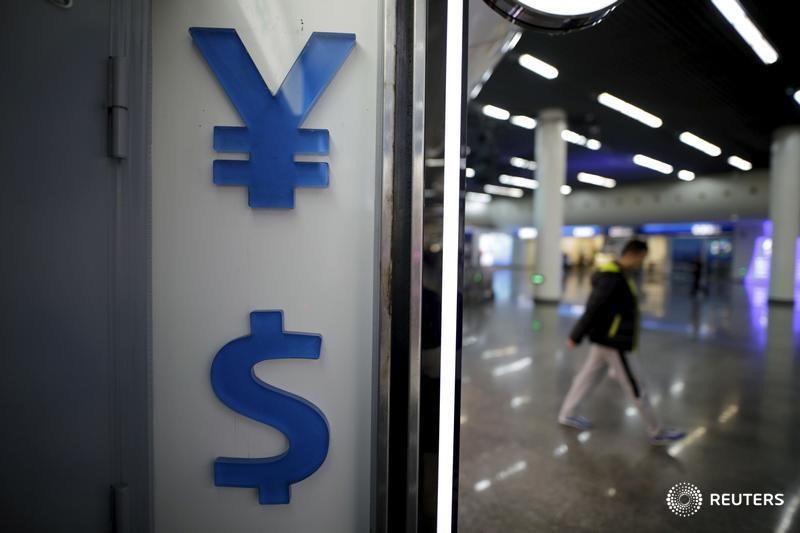 © Reuters.
© Reuters.
Investing.com-- Most Asian currencies moved little on Monday, while the dollar steadied as traders hunkered down before a string of central bank meetings this week, most notably the Federal Reserve and Bank of Japan.
Persistent concerns over the Israel-Hamas war remained in play, as Israel launched a large-scale ground assault on Gaza. But signs of no immediate escalation in the conflict offered some relief to risk-driven markets.
The dollar index and dollar index futures firmed slightly in Asian trade, retaining most of their gains from last week as markets remained largely apprehensive of a Fed interest rate decision on Wednesday. The central bank is set to keep rates on hold, but is likely to signal higher-for-longer rates as it continues to move against overheated inflation.
Higher U.S. rates bodes poorly for Asian currencies, as the gap between risky and low-risk yields narrows. U.S. Treasury yields also advanced on Monday, remaining within sight of recent peaks.
Most Asian currencies stuck to a flat-to-low range as sentiment remained frail. The Australian dollar was among the few outliers for the day, rising nearly 0.4% as data showed a stronger-than-expected jump in retail sales through September.
The reading factors into higher inflation expectations, and furthers bets that the Reserve Bank of Australia will hike interest rates when it meets next week.
Japanese yen steady below 150, hawkish BOJ in focus
The Japanese yen firmed slightly on Monday, moving below the 150 level after sinking to a one-year low last week.
Focus was squarely on the conclusion of a BOJ meeting on Tuesday, where the central bank is expected to potentially announce further changes to its yield curve control policy, as it grapples with high inflation and a severely weakened yen.
Recent data showed a growing resurgence in Japanese consumer inflation, which traders bet could push the BOJ into scaling back its ultra-loose policy. Analysts also see an end to the bank’s negative interest rates in 2024.
Any hawkish moves by the BOJ are expected to benefit the yen, which is one of the worst-performing Asian currencies this year. Markets were also watching for any intervention by the Japanese government in currency markets, to support the yen.
Among other currencies, China’s yuan was flat on Monday, with markets waiting for key purchasing managers index data due on Tuesday. The reading is expected to show some improvement in Asia’s largest economy.
The Indian rupee rose 0.2%, tracking a decline in oil prices, while the South Korean won and the Taiwan dollar also added 0.2% each.
Beyond the Fed and the BOJ, the Bank of England is also set to decide on interest rates this week.

